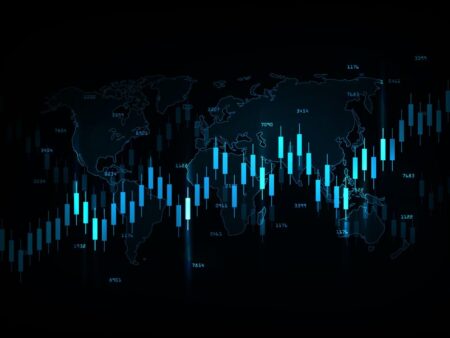Forex trading, also known as foreign exchange trading, is a decentralized global market where currencies are bought and sold.
What is Forex Trading?

Introduction
Forex trading, also known as foreign exchange trading, is a decentralized global market where currencies are bought and sold. It is one of the largest and most liquid financial markets in the world, with an average daily trading volume exceeding $6 trillion as of my last knowledge update in September 2021.
Currency Pairs and Exchange Rates
At the heart of forex trading are currency pairs. These are combinations of two currencies, where one is exchanged for the other. For instance, in the EUR/USD pair, the euro is the base currency, and the US dollar is the quote currency. The exchange rate indicates how much of the quote currency is needed to purchase one unit of the base currency.
How Forex Trading Works
Forex trading occurs 24 hours a day, five days a week, due to the global nature of the market. It is facilitated electronically through a network of banks, financial institutions, corporations, and individual traders. Transactions are executed over-the-counter (OTC), meaning they are conducted directly between parties without a centralized exchange.
Role of Brokers
Individual traders participate in the forex market through intermediaries called brokers. These entities provide a platform for traders to access the market, execute trades, and offer various tools and resources for analysis. Brokers can be divided into two categories: market makers and ECN/STP (Electronic Communication Network/ Straight Through Processing) brokers.
Importance of Leverage and Margin
Leverage allows traders to control a large position with a relatively small amount of capital. For instance, a leverage of 50:1 enables a trader to control a position worth $50,000 with only $1,000 of their own capital. While leverage amplifies potential profits, it also increases the risk of losses. Margin is the amount of money required to open and maintain a position.
Benefits and Risks of Forex Trading
Benefits:
- High Liquidity: The forex market is highly liquid, meaning large positions can be entered and exited with minimal impact on prices.
- Accessibility: The market is open to individual traders, allowing them to participate with relatively low capital.
- Diverse Opportunities: Traders can profit from both rising and falling markets, thanks to the ability to short-sell currencies.
Risks:
- High Volatility: The forex market can experience rapid price movements, which can lead to substantial gains but also significant losses.
- Leverage Risk: While leverage can amplify profits, it can also lead to magnified losses, potentially exceeding the initial investment.
- Market Complexity: Understanding the factors that influence currency movements requires a solid grasp of global economics and geopolitical events.
Conclusion
Forex trading offers a unique opportunity for individuals to participate in a dynamic and global financial market. It provides potential for profit, but it’s crucial to approach it with a clear understanding of its complexities, including the risks involved. Further exploration and education are essential for anyone considering entering the world of forex trading.
Note: The information provided here is based on knowledge.








